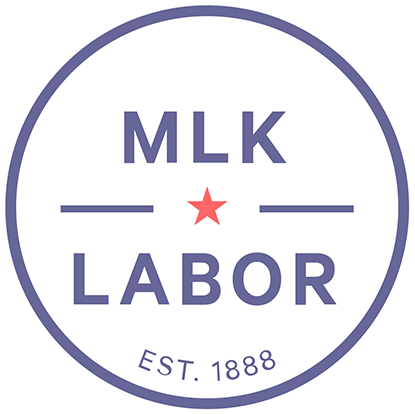Resolution
September 21, 2020
Communities & Jobs Not Cuts – Anti-Austerity Resolution
PASSED SEPTEMBER 16, 2020
WHEREAS, decades of policy requiring austerity and spending cuts during economic crises have worsened recessions and prolonged unemployment.
WHEREAS, in the first months and years of the economic crisis of 2008, many governments worldwide increased spending temporarily, only to significantly cut expenditures in 2010-2011. This rapid policy reversal is understood to have been premature and led to slow recoveries, lingering unemployment, and civil unrest.
WHEREAS, austerity measures of 2008 contributed to underfunding public health infrastructure leaving it unprepared for the COVID-19 pandemic.
WHEREAS, the United States successfully responded to the economic impacts of both the Great Depression and World War II with higher taxes on the wealthy and increased government spending programs.
MOREOVER, high tax rates were rolled back over the course of the decades following, and now the highest tax rates are a fraction of what they were during the 40s and 50s. There is considerable room to significantly increase tax rates and government revenues without approaching the high-water mark after WWII. This money would greatly benefit much-needed repairs to the health care system.
WHEREAS, comparing states that made severe cuts to public sector employment and spending to states that did not make such cuts during the Great Recession shows that states that cut public spending went hand-in-hand with deeper job losses overall, slower economic recovery, and lower private-sector job recovery.
WHEREAS, by 2025, Washington State’s tax revenue is projected to decrease by over 30% as a share of personal income. Meanwhile, the early stages of the COVID-19 pandemic have seen a doubling in the demand for state cash and food assistance programs.
WHEREAS, Black, Indigenous, and communities of color have been disproportionately impacted by both the health impacts and economic impacts of the COVID-19 pandemic and therefore will be the most reliant on social safety net programs that are vulnerable to austerity measures.
WHEREAS, the City of Seattle employee layoffs in response to the Great Recession between 2009 and 2011 disproportionately impacted women, black, and indigenous employees, and female people of color experienced a layoff rate almost twice the average rate of all City employees.
WHEREAS, King County is home to over 1.29 million working people – the largest labor market in the state – representing 42% of all (nonfarm) jobs in the state in top industries such as service employees, professional and technical services, transportation, education, and healthcare, information technology, and manufacturing.
WHEREAS, Washington state, King County, and local governments including the City of Seattle are facing massive budget shortfalls. Washington state is anticipating an $8.8 billion budget gap for the next biennium, King County is projecting sales tax shortfalls of 20-30% for the next two years, and the City of Seattle has stated as much as $300 million is needed in order to have a balanced budget for 2021.
WHEREAS, we have already begun to experience layoffs by employers of “essential” workers and public programs that not only has immediate devastating impacts but does not coincide with what the data shows to foster a more rapid economic recovery.
THEREFORE, BE IT RESOLVED: It is of utmost importance that we learn from our past and avoids measures of austerity as we face this economic downturn.
We must do this together – mobilizing Labor and community partners while centering racial equity.
Budgets are moral documents and therefore must reflect the values of who they should serve: the people, families, workers, and community. We will fight against calls for austerity that would cut public sector funding and programs during this crucial time of need. We urge our leaders to learn from the failed response to previous recessions by putting for budgets in the coming weeks and months that expand the safety net of services and public goods that are consistently needed, particularly during a pandemic.
The survival of working families is dependent on the ability of people to continue working, maintain health benefits, and support themselves and their loved ones. We encourage redeployment of workers with diminished work needs to other areas of work.
We recommend endorsement of Congresswoman Jayapal’s Paycheck Recovery Act to the Washington State Labor Council and the AFL-CIO. The Paycheck Recovery Act would provide grants to employers of all sizes, including state and local governments, to quickly deliver paychecks to workers and provide additional support to businesses for operation costs.
In alignment with the solutions proposed by BIPOC communities, we recommend that funding for law enforcement officers be divested towards non-violent, non-coercive, unarmed civilian jobs supporting community services, health, public welfare, parks & recreation, and housing and community development and that layoffs of these jobs be avoided at all costs. MLK Labor will work with union affiliates to hold the leaders at the City of Seattle and King County accountable to the community and in particular the BIPOC community, which they have historically failed to center when making fiscal decisions.
MLK Labor will further work with union affiliates, and BIPOC community leadership, to develop and support a comprehensive campaign to mobilize members to save jobs, promote capital investment in our infrastructure, fight austerity, develop new forms of revenue, and explore new, fairer tax structures for our local, state and federal governments.
We will rise together so that all of us, including particularly the most vulnerable, can thrive.
